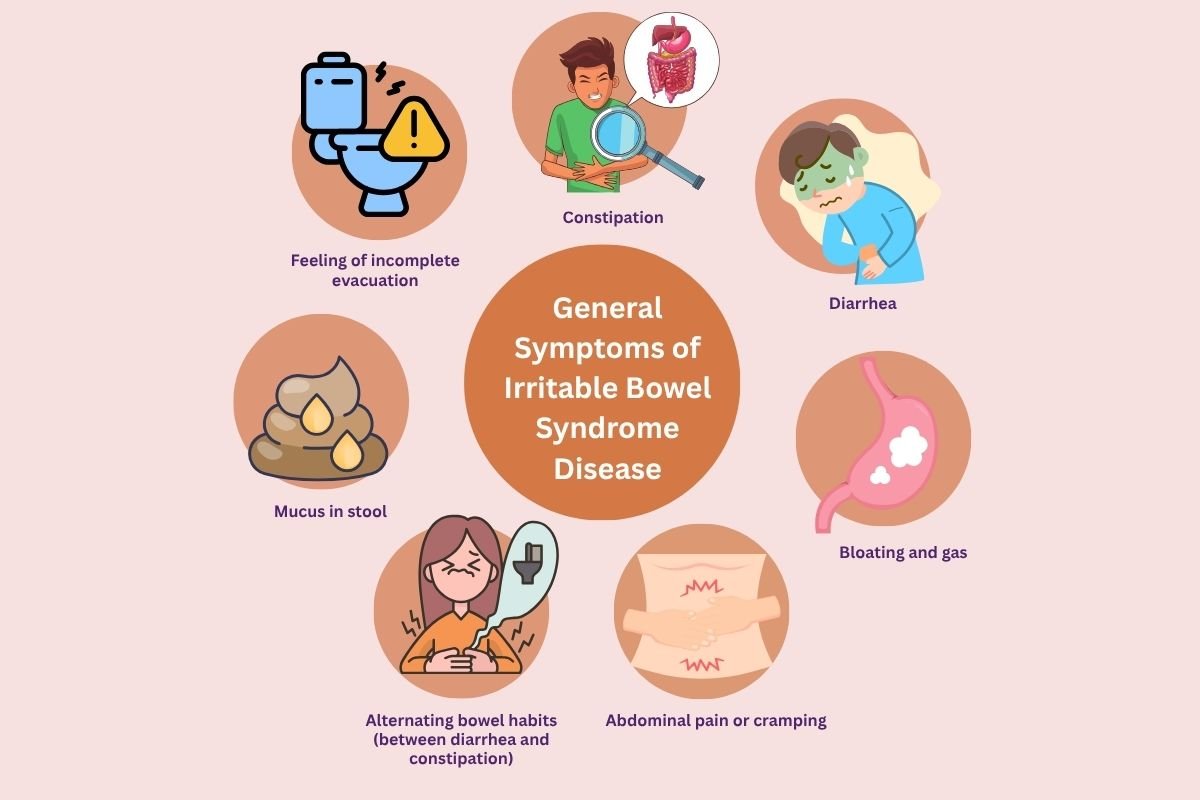Are You Ignoring the Signs of Irritable Bowel Syndrome Disease? Here’s What Your Gut’s Telling You
Are You Ignoring the Signs of Irritable Bowel Syndrome Disease? Here’s What Your Gut’s Telling You
Blog Article
copyright class="elementor-search-form" action="https://thelifesciencesmagazine.com/" method="get">
Are You Ignoring the Signs of Irritable Bowel Syndrome Disease? Here’s What Your Gut’s Telling You

- Source: Tharakorn from Getty Images
Do you ever feel the need to peek into your health system?
If yes, then get your gut checked first. All disease begins in the gut. It is the core of the human body, grants overall health, and makes you feel healthy and happy. Many of you may not know the name, but you are living with that disease. One of those can be Irritable Bowel Syndrome disease (IBS). This chronic disorder gives you cramps, constipation, and abdominal pain, followed by some more symptoms.
In this article, we will discuss the causes, risk factors, and treatments of IBS with everything else.
Overview of IBS
Irritable bowel syndrome disease, also known as gastrointestinal tract disease, is a condition that affects the intestines with symptoms of abdominal pain and cramps. The patients with IBS may experience frequent diarrhea, constipation, or both. However, IBS doesn’t cause a serious disease, but it’s a chronic condition that can be managed by adopting some food habits, changes in routine, taking proper treatments, and medications.
Types of Irritable Bowel Syndrome Disease
1. IBS-D (Diarrhea-Predominant IBS)- Frequent, loose, or watery stools.
- Symptoms- Abdominal pain and cramping.
2. IBS-C (Constipation-Predominant IBS)- Hard, difficult-to-pass stools or infrequent bowel movements.
- Symptoms- Straining and bloating
3. IBS-M (Mixed IBS or IBS-A)- Alternating episodes of constipation and diarrhea.
- Symptoms- Both abdominal pain and bloating
4. IBS-U (Unclassified IBS)- Symptoms of IBS that do not fit into the D, C, or M categories.
- Symptoms- Diarrhea, constipation, and abdominal pain
General Symptoms of Irritable Bowel Syndrome Disease
These are primarily gastrointestinal symptoms and are directly related to bowel function.

- Abdominal pain or cramping
- Bloating and gas
- Diarrhea
- Constipation
- Alternating bowel habits (between diarrhea and constipation)
- Mucus in stool
- Feeling of incomplete evacuation
Read More: Understanding Irritable Bowel Syndrome: Causes, Symptoms, and Management Strategies
Other symptoms of IBS
These are effects or associated symptoms not directly caused by bowel movement dysfunction, but often experienced by IBS patients.
- Nausea
- Fatigue and difficulty sleeping.
- Worsening symptoms after eating
Causes of Irritable Bowel Syndrome Disease
1. Gut-Brain Axis Dysfunction
The communication between the brain and the gut is closely connected through the gut-brain axis, which may be disrupted in IBS sufferers, leading to abnormal digestive tract and heightened pain sensitivity.
2. Intestinal Muscle Contractions
Intestinal wall muscles that help food move through the digestive tract have stronger or weaker contractions. Both affect to IBS person, as stronger contractions cause gas, bloating, and diarrhea, weaker contractions can slow digestion and cause constipation.
3. Gut Microbiome Imbalance

4. Infections
IBS can be an aftereffect of a severe gastrointestinal infection, such as food poisoning or gastroenteritis. This is called post-infectious IBS.
5. Stress and Mental Health Issues
Stress doesn’t have a direct relation to physical pain, but it can trigger the symptoms. Anxiety, depression, and trauma may adverse the IBS condition.
6. Inflammation and Immune Activation
Low-grade inflammation in the gut or an overactive immune response can contribute to IBS symptoms, particularly in some subtypes of the disorder.
Risk Factors of IBS

- Gender- Women are prone to get IBS than men. Hormonal fluctuations may be the reason, especially in the menstrual cycle.
- Age- Chances of catching IBS often begin before the age of 50, typically in the late teens to early 40s.
- Family History- Genes can be responsible, as family that has a history of IBS increase the chances of developing it.
- Mental Health Conditions- Psychological factors like stress, anxiety, depression, and trauma can indeed cause disturbance in gut function.
- History of Gastrointestinal Infections- After a severe bout of gastroenteritis (post-infectious IBS), bacterial, viral, or parasitic infections can increase the risk of developing IBS
- Food Sensitivities or Intolerances- Consumption of certain foods like dairy, gluten, caffeine, or high FODMAP foods may trigger the symptoms of IBS
- Changes in Gut Microbiome- Imbalance of good and bad bacteria in the gut or small intestinal bacterial overgrowth (SIBO) can promote IBS.
- Chronic Pain Disorders- IBS is commonly seen in people who have conditions like fibromyalgia, chronic fatigue syndrome, or interstitial cystitis.
Read More: Understanding Gastrointestinal Diseases: Causes, Symptoms, and Treatment Options
Diagnosis & Tests for Irritable Bowel Syndrome Disease
The diagnosis of IBS is symptom-based and recognized after examination and tests.
- Medical History & Symptom Review
A patient’s medical history has to be checked, and symptoms like abdominal pain, bowel habits (diarrhea, constipation, or both), and how long they’ve persisted. - Rome IV Criteria
IBS is often diagnosed using the Rome IV criteria, which is a specified way to examine the full dimensions of the patient and requires recurrent abdominal pain (at least one day per week in the last three months) associated with two or more of the following:
- Pain related to defecation
- Change in stool frequency
- Change in stool form (appearance)
- Physical Examination
A deep diagnosis is required to detect if there are other conditions or any serious illness. It’s mandatory not to skip any part of the diagnosis process. - Exclusion of Other Diseases
To test other causes, like celiac disease, inflammatory bowel disease (IBD), infections, or colon cancer. These may include-
- Blood tests
- Stool tests
- Colonoscopy (if needed based on age or alarm symptoms)
- Alarm Features
If symptoms like weight loss, rectal bleeding, anemia, or a family history of colon cancer are present, further testing is done to avoid serious conditions.

Treatment of Irritable Bowel Syndrome Disease
IBS treatment has no guaranteed results, however, some precautions and care can manage symptoms.

- Dietary changes (low FODMAP diet, fiber intake)
- Medications (antispasmodics, laxatives, anti-diarrheals, probiotics)
- Lifestyle adjustments (stress management, regular exercise)
- Therapies such as cognitive behavioral therapy (CBT) or gut-directed hypnotherapy
Read More: Foods to Avoid if You Have IBS: Expert Tips for Relief
Conclusion
Irritable Bowel Syndrome Disease may be a lifelong condition, but treating it right makes your life easier. Symptoms and treatments may vary as every gut is different. Choosing what works for you will be beneficial. Irritable Bowel Syndrome demands awareness, the right care, and a lot of patience; with all of these, you can heal your gut.
Now you are aware of your gut feeling!
